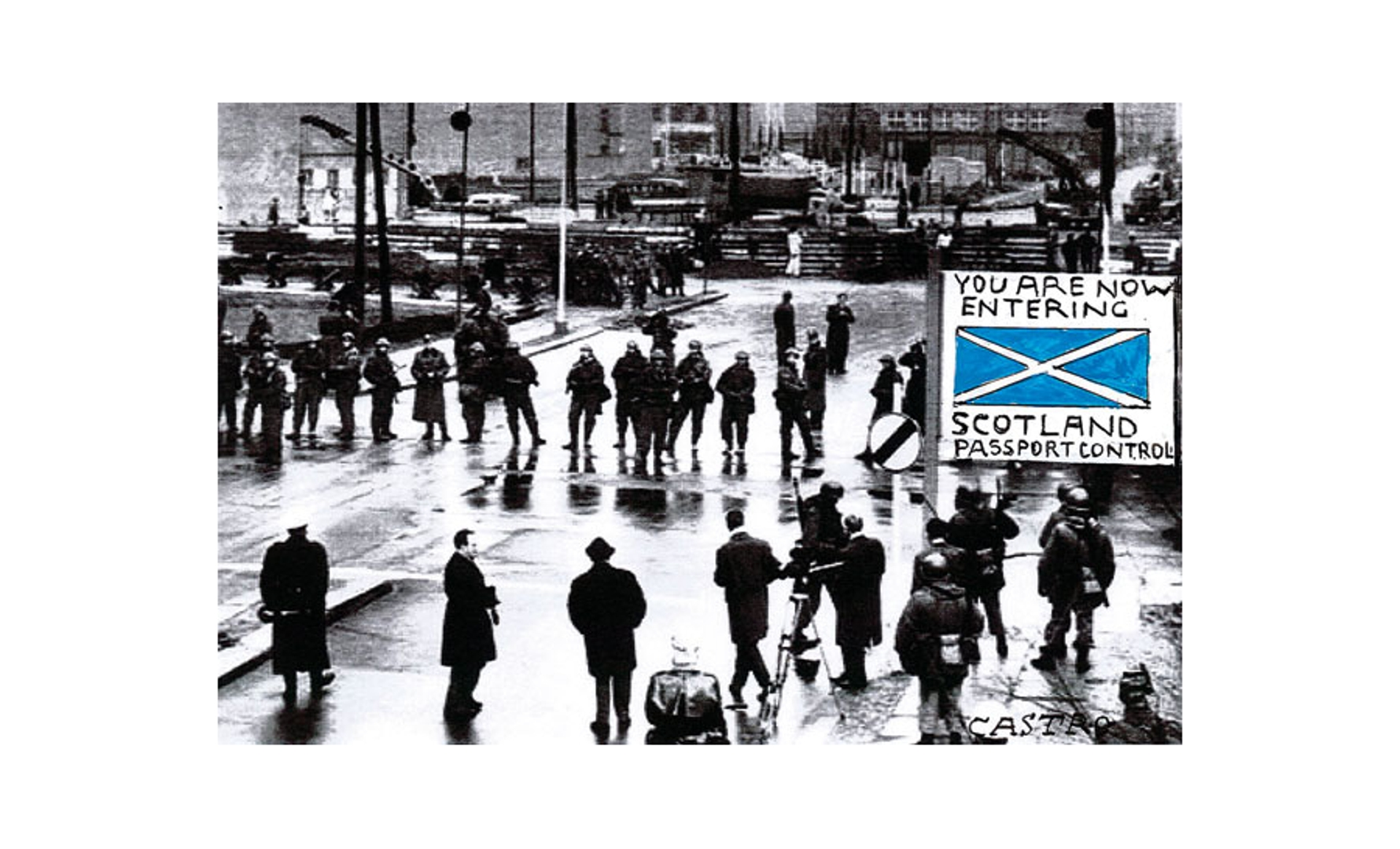John Swinney and his colleagues continuously claim Scotland ‘rejoining’ the EU is possible, and that by voting SNP we can make it happen. In this general election the SNP manifesto commits to ‘an independent Scotland in the EU.’ This is a perfect example of the way a comforting lie becomes more popular than an unpleasant truth. Why deal with reality and its messy trade-offs when off-the-shelf utopia is available instead?
An independent Scotland in the EU is a myth for the simple reason that the act of separating from the UK would create a new Scottish state structurally prohibited from entering the EU, certainly within any reasonable timeframe.
At the heart of the SNP’s pitch is a straight-forward contradiction
At the heart of the SNP’s pitch is a straight-forward contradiction. The party wants Scotland to secede from the UK and then accede to the EU, using the Article 49 provision for new entrants to the bloc. This would require Scotland to adopt the 35 chapters of the EU’s ‘acquis communautaire’ body of laws. But at the same time, the SNP’s post-secession national currency plan is to continue using sterling unofficially, rather than its own official state-controlled currency. This makes it impossible to comply with the EU’s acquis.
Specifically, chapter 17 of the acquis, covering economic and monetary policy, states the following:
‘The acquis in the area of economic and monetary policy contains specific rules requiring the independence of central banks in Member States, prohibiting direct financing of the public sector by the central banks and prohibiting privileged access of the public sector to financial institutions. Member States are expected to co-ordinate their economic policies and are subject to the Stability and Growth Pact on fiscal surveillance. New Member States are also committed to complying with the criteria laid down in the Treaty in order to be able to adopt the euro in due course after accession. Until then, they will participate in the Economic and Monetary Union as a Member State with a derogation from the use of the euro and shall treat their exchange rates as a matter of common concern.’
Using the currency of a country that is outside the EU would clearly make it impossible to meet these requirements.
The SNP states an independent Scotland would move from unofficially using sterling to having its own currency ‘as soon as practicable’ after secession. In theory, this would then make agreeing with chapter 17 of the acquis possible. But in keeping with the party’s 2018 Growth Commission report, that timeframe is generally taken to mean around a decade. It also assumes a smooth transition to being outside the formal sterling area. This seems overly optimistic, given Scotland would be the first of the world’s modern, industrialised economies to cut itself off from its in-place monetary and fiscal base.
The reality is that sterlingisation – using the pound outside of the sterling currency zone – would in-and-of-itself likely precipitate an economic crisis. Scotland’s recovery from secession from Britain, followed then by accession to the EU, if it ever happened, would clearly take many years, and perhaps even decades.
To divert people’s attention from its policy contradictions, SNP leaders have talked about Scotland largely being in compliance with the acquis already, given its previous place within the EU. This is a piece of misdirection. Previous compliance with EU laws across the UK tells us nothing about the accession challenge Scotland would face having severed its economy from key institutions, such as a currency-issuing central bank, critical to meeting the EU’s entry requirements.
The bottom line is this: ‘rejoin’ is, technically at least, a realistic proposition for the UK but not for an independent Scotland. The SNP, of course, has never accepted this publicly, and so has opted instead to indulge in the kind of post-reality politics that has done so much damage to western democracies.
John Swinney gave a speech in Aberdeen yesterday where he again made the false claim that a vote for the SNP is a vote to rejoin the EU. He also complained that ‘Scotland’s voice simply does not matter to the Westminster establishment.’ Not content with misleading the people of Scotland, it seems he’s now also resorting to aping the rhetoric of Nigel Farage. How far the party has fallen.
For that, and for his party’s persistent lack of honesty on the EU, there should be a price to pay come election day. Sometimes unpleasant truths have to be told, and comforting lies met with a reality check.









Comments